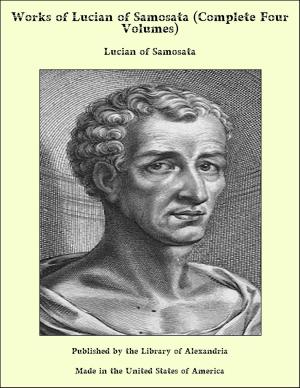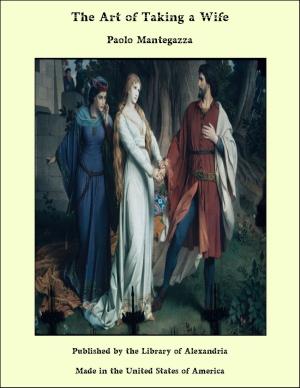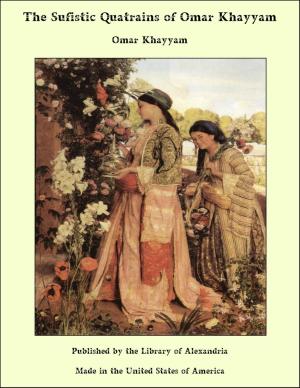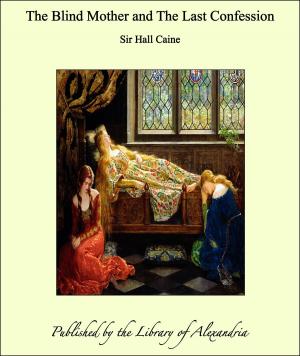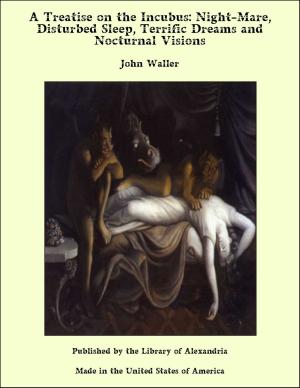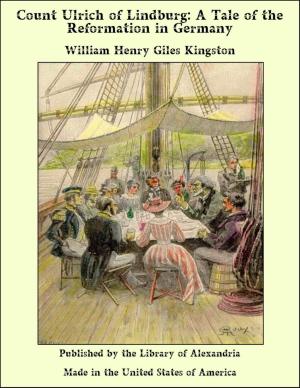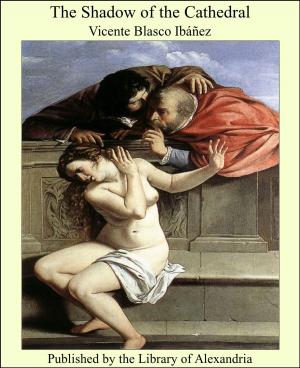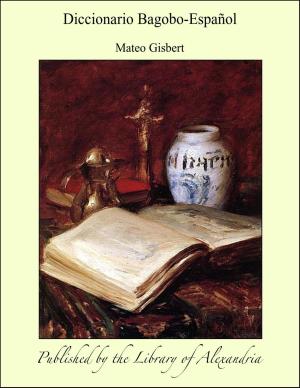An Account of the Death of Philip Jolin who was Executed for the Murder of his Father in the Island of Jersey, October 3, 1829
Nonfiction, Religion & Spirituality, New Age, History, Fiction & Literature| Author: | Francis Aloysius Cunningham | ISBN: | 9781465562203 |
| Publisher: | Library of Alexandria | Publication: | July 29, 2009 |
| Imprint: | Library of Alexandria | Language: | English |
| Author: | Francis Aloysius Cunningham |
| ISBN: | 9781465562203 |
| Publisher: | Library of Alexandria |
| Publication: | July 29, 2009 |
| Imprint: | Library of Alexandria |
| Language: | English |
THE LAST DAYS OF PHILIP JOLIN, LATELY EXECUTED AT ST. HELENS, FOR THE MURDER OF HIS FATHER. The particulars of the crime of this unfortunate young man may be stated in a few words. He had long been known in the neighbourhood where he lived, as an object of disgrace, and the cause of perpetual disturbance. Not indeed that he was more profligate in character than those with whom he was immediately connected. His father, as well as his mother-in-law, lived in habits of drunkenness. She died eight months before the son committed the crime for which he suffered. Jolin was, with his father, by trade a blacksmith. His business brought with it some temptation to drinking; and, in Jersey, where spirits are cheaper even than in England, this disposition was most easily gratified. So that, with the example of his parents, and his own circumstances, it is not a matter of astonishment that he fell into the course of sin which led to his ruin. The progress of vice was, it is to be presumed, in his case, like that of other drunkards. The liquor, at first taken as a bodily relief, unguarded by any restraint, was soon resorted to as an indulgence; till at last he was enlisted in the number of those of whom the prophet speaks, “who rise up in the morning that they may follow their drink, and continue till night, till wine inflames them.” But the abominable tendency of this particular sin is illustrated almost equally by the conduct of the father and son. It appeared on the trial of Jolin, that he had been exposed to the greatest cruelties on the part of his father. One person deposed, that he had often seen him beat his son with a hammer, or any thing else, which might happen to come under his hand, and almost always about the head; and the scars from these wounds were seen on his head when he was committed to prison. Another, that she had once heard the prisoner’s mother cry out for help. She went in, and saw the son down, and the father striking him with an iron bar, saying at the same time, that he was going to kill him. Very often he would not give him any food. Another witness testified, that, going into the house of the father, he saw him put down a flat iron bar, with which he had just been striking his son on the head, and his head was covered with blood. He was laid on his bed, but his father refused to allow any assistance to be tendered to him. This witness had seen the father kick his son about several parts of the body. What a contrast is all this to that scene which the psalmist describes of a household where the Spirit of God dwells—“Behold, how good and how pleasant it is for brethren to dwell together in unity, for there the Lord commandeth his blessing.” These facts are introduced, not only in explanation of the subject, but that some light may be thrown on the appeal which Jolin afterwards made to his judge on his own behalf. On the morning on which the last crime was committed, as Jolin confessed to one who attended upon him in prison, he had drank to excess, and become completely intoxicated. In this state he returned to his own home—a home of which, he added, “no one knew the wretchedness.” It was dinner time, but he found no food prepared, and from his father he met with only that reception which he might expect from such a parent; more especially when he himself was overcome with drunkenness. He went into the garden to gather a pear, and about this the fatal quarrel ensued. The father had come behind, and caught him by the cape of the jacket, and kicked him about the back and legs. He tore himself from his father, and was soon seen running out of the house crying, and the father in the act of pursuing, as if with the intention of striking him. The father said that he would “settle him when he returned.” The son replied, that he would “settle him (the father) also.” The son then ran to a heap of bricks which lay in the street, and taking one which he appears to have broken in two pieces, he returned to be revenged on his father. He was remonstrated with by a neighbour, but in vain. In his rage he threw the brickbats at his father. One of the pieces struck him on the head, and he immediately fell to the ground. The wretched sufferer swooned from the violence of the blow and the loss of blood. In this state he appears to have remained, with very little change, for about an hour, when he died. It is not stated whether he was enabled to cry for mercy to that God, into whose presence he was thus awfully hurried; or whether he had time to reflect upon the state of his son, and his probable punishment. How awful must have been the change to this wretched man, when he found himself in a moment lifting up his eyes before the Judge of quick and dead! Meanwhile, the son, utterly unconscious of what he had done, or feeling only satisfaction at what he thought was the suitable punishment for his father, went out again, and finding his way into a neighbour’s shop, told the keeper of it that his father had beaten him, and that he had knocked him down. Here he fell asleep, and slept probably till his fit of intoxication had passed away. On rising he was about quietly and unsuspectingly to return to the scene of his crime, when he was arrested and brought to prison. When, on the way to the prison, he was told that his conduct might possibly bring him to the gallows, he showed his first symptom of alarm. He remained in prison till Thursday, September 24, when he was submitted to his first public examination. The trial, according to the laws of that country, was repeated on Monday the 28th. The judges, and two juries, in number together thirty-seven, after the fullest investigation of the facts, and after hearing the able defence of his advocate, Mr. Hammond, pronounced his crime to be murder, and condemned him to death. The court refused even to make application for the mitigation of punishment, whereupon he was delivered to the execution of his sentence, which he underwent on Saturday, Oct. 3d
THE LAST DAYS OF PHILIP JOLIN, LATELY EXECUTED AT ST. HELENS, FOR THE MURDER OF HIS FATHER. The particulars of the crime of this unfortunate young man may be stated in a few words. He had long been known in the neighbourhood where he lived, as an object of disgrace, and the cause of perpetual disturbance. Not indeed that he was more profligate in character than those with whom he was immediately connected. His father, as well as his mother-in-law, lived in habits of drunkenness. She died eight months before the son committed the crime for which he suffered. Jolin was, with his father, by trade a blacksmith. His business brought with it some temptation to drinking; and, in Jersey, where spirits are cheaper even than in England, this disposition was most easily gratified. So that, with the example of his parents, and his own circumstances, it is not a matter of astonishment that he fell into the course of sin which led to his ruin. The progress of vice was, it is to be presumed, in his case, like that of other drunkards. The liquor, at first taken as a bodily relief, unguarded by any restraint, was soon resorted to as an indulgence; till at last he was enlisted in the number of those of whom the prophet speaks, “who rise up in the morning that they may follow their drink, and continue till night, till wine inflames them.” But the abominable tendency of this particular sin is illustrated almost equally by the conduct of the father and son. It appeared on the trial of Jolin, that he had been exposed to the greatest cruelties on the part of his father. One person deposed, that he had often seen him beat his son with a hammer, or any thing else, which might happen to come under his hand, and almost always about the head; and the scars from these wounds were seen on his head when he was committed to prison. Another, that she had once heard the prisoner’s mother cry out for help. She went in, and saw the son down, and the father striking him with an iron bar, saying at the same time, that he was going to kill him. Very often he would not give him any food. Another witness testified, that, going into the house of the father, he saw him put down a flat iron bar, with which he had just been striking his son on the head, and his head was covered with blood. He was laid on his bed, but his father refused to allow any assistance to be tendered to him. This witness had seen the father kick his son about several parts of the body. What a contrast is all this to that scene which the psalmist describes of a household where the Spirit of God dwells—“Behold, how good and how pleasant it is for brethren to dwell together in unity, for there the Lord commandeth his blessing.” These facts are introduced, not only in explanation of the subject, but that some light may be thrown on the appeal which Jolin afterwards made to his judge on his own behalf. On the morning on which the last crime was committed, as Jolin confessed to one who attended upon him in prison, he had drank to excess, and become completely intoxicated. In this state he returned to his own home—a home of which, he added, “no one knew the wretchedness.” It was dinner time, but he found no food prepared, and from his father he met with only that reception which he might expect from such a parent; more especially when he himself was overcome with drunkenness. He went into the garden to gather a pear, and about this the fatal quarrel ensued. The father had come behind, and caught him by the cape of the jacket, and kicked him about the back and legs. He tore himself from his father, and was soon seen running out of the house crying, and the father in the act of pursuing, as if with the intention of striking him. The father said that he would “settle him when he returned.” The son replied, that he would “settle him (the father) also.” The son then ran to a heap of bricks which lay in the street, and taking one which he appears to have broken in two pieces, he returned to be revenged on his father. He was remonstrated with by a neighbour, but in vain. In his rage he threw the brickbats at his father. One of the pieces struck him on the head, and he immediately fell to the ground. The wretched sufferer swooned from the violence of the blow and the loss of blood. In this state he appears to have remained, with very little change, for about an hour, when he died. It is not stated whether he was enabled to cry for mercy to that God, into whose presence he was thus awfully hurried; or whether he had time to reflect upon the state of his son, and his probable punishment. How awful must have been the change to this wretched man, when he found himself in a moment lifting up his eyes before the Judge of quick and dead! Meanwhile, the son, utterly unconscious of what he had done, or feeling only satisfaction at what he thought was the suitable punishment for his father, went out again, and finding his way into a neighbour’s shop, told the keeper of it that his father had beaten him, and that he had knocked him down. Here he fell asleep, and slept probably till his fit of intoxication had passed away. On rising he was about quietly and unsuspectingly to return to the scene of his crime, when he was arrested and brought to prison. When, on the way to the prison, he was told that his conduct might possibly bring him to the gallows, he showed his first symptom of alarm. He remained in prison till Thursday, September 24, when he was submitted to his first public examination. The trial, according to the laws of that country, was repeated on Monday the 28th. The judges, and two juries, in number together thirty-seven, after the fullest investigation of the facts, and after hearing the able defence of his advocate, Mr. Hammond, pronounced his crime to be murder, and condemned him to death. The court refused even to make application for the mitigation of punishment, whereupon he was delivered to the execution of his sentence, which he underwent on Saturday, Oct. 3d

